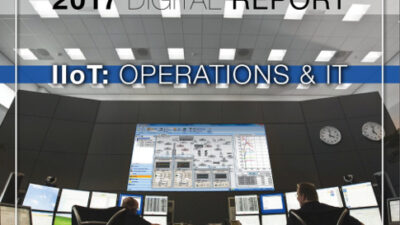Don't play around with finding automation project help. New guidelines suggest how to select and work with a control system integrator.
Control System Integrator Association’s www.controlsys.org new ‘Guide for Selecting & Working with a Control System Integrator’ (the Guide) helps end-users find a control system integrator with the knowledge, expertise, and experience required for specific industries and applications.
Here’s additional information about the Guide’s development, companies that contributed their expertise; some specific questions the Guide suggests asking about project management; and, a suggested list of questions to ask when evaluating a proposal.
Companies lend experience
The following companies contributed to developing CSIA’s ‘Guide for Selecting & Working with a Control System Integrator.’
Client companies (end-users):
DuPont
Clorox Products Manufacturing Co.
ConAgra, Inc.
GRACO Children’s Products
Product manufacturers:
GE Automation Services
Siemens Moore Process Automation
Eaton Corp./Cutler-Hammer
National Instrument
Also contributing were several equipment distributors and system integrator members of the CSIA.
Ask these project management questions before hiring a control system integrator
Prospective clients may not need to judge a control system integrator’s (CSI’s) actual project management methodology during the evaluation stage, but they will want to ensure that the methodologies will be documented and followed according to project scope. Here are a few specific questions the Guide suggests the client ask about project management:
Clarity of scope: Does the CSI review project specifications, proposals, project schedules and technical specifications to ensure client expectations are understood? Are the functional requirements presented to the client for approval?
Client approval: Does the CSI require that all schedule, cost and work changes be documented and coordinated with the client for approval?
Practices and standards: Are the standard design techniques up to date? Are software development standards used and are they properly documented?
Documentation: Does the CSI prepare and use manuals for executing the project? Is there a methodology for tracking and storing all project materials? Are final project documents presented in a standardized format which is consistent between projects?
Testing: Is a factory acceptance test performed on all systems? Are results documented?
Field modification documentation: Are field modifications that change the scope of the project properly documented and negotiated with the client before the services are performed?
Financial management: Does the CSI focus their financial and accounting procedures on the specific means required to manage, control, report, and plan the company’s financial resources?
Technical: Does the CSI possess the necessary technical qualifications, project experience, service capabilities, and client risk avoidance methodologies?
The following issues are particularly important on the suggested criteria list.
Location (response time): How much on-site help will be required from the CSI to supplement the in-house staff? Will local, regional, or national on-site support be required?
General experience: Past project history and the CSI’s resources are important for evaluating the CSI and the project’s chances for success. What is their record on project implementation, project management, and execution? How big are their typical projects, both in dollars, time, and resource requirements? Can the CSI provide multiple references? How good are they? Does the CSI have good working relationships with other clients and vendors?
Project experience: What experience does the CSI have with similar projects? How many and how large? Are the available CSI personnel experienced with such applications? Is the CSI’s training and experience on the client’s standard hardware and software up to date? Is the CSI familiar, trained, or experienced in the requirements of the client’s industry regulations and standards?
Types of services: A CSI that can provide a full range of services for the project should be more effective. Does the CSI provide consulting, project management, specification and design, software development, procurement, panel fabrication, installation, commissioning, training, and on-going support?
Risk consideration: Are the CSI’s credit rating and financial ratios sound? Are their years in business, staff turnover ratio, average staff tenure, and asset ownership indicative of a stable company? Are there any pending insurance claims or pending litigation?
Ask these questions about a submitted proposal before hiring a control system integrator
Once a request for proposal has been published and answered, the client is faced with the daunting challenge of evaluating and competing proposals. The selection process that the Guide suggests involves the same decision analysis tool used to evaluate and select a CSI, albeit with different criteria such as:
Basis of proposal: Has the CSI clearly stated the conditions on which the proposal was based?
Commercial: Have any special terms concerning payment, bonding, insurance, delivery conditions, etc. been clearly defined?
Capabilities: Does the CSI have the personnel with appropriate training and experience for the project? Has the project team been identified?
Deliverables: Has a list of tangible deliverables been provided?
Delivery: Has an acceptable project schedule been submitted?
Documentation: Has the CSI provided a list of documents to be generated, including number of copies and format?
Equipment supply: Does the proposed equipment match the RFP requirements?
Exceptions: Are exceptions to the RFP clearly stated?
Location: Is the CSI’s location an issue?
Options: Have optional components for the project been clearly described and priced?
Cost: Have the cost categories been clearly specified? Do they agree with the RFP? Are rates and fee structures clearly defined? Have applicable taxes and freight charges been included?
Services: Do the proposed services for drawings, HMI development, factory acceptance test, etc., match the requirements of the RFP and have they been clearly stated?
Software: Is there a description of the software to be provided, including third-party products?
Spare parts: Does the RFP include spare part specifications?
Terms and conditions: Have the terms and conditions been provided and are they acceptable?
Warranty: Is the warranty explained in the proposal or in a separate document?
Developing control system integrator benchmarks: the story behind the story
The seeds for the CSIA’s two ‘how to’ guides were planted as early as 1995, when the CSIA embarked on a program to develop a set of professional practices and standards for its members that would lead to greater success for the control system integration industry.
Modeled after the American Consulting Engineers Council Peer Review Program, the standards were set forth in a ‘Best Practices and Benchmarks’ (BP&B) manual that was released to the membership in 1997. It enabled CSIA members to provide self-evaluation and improvement of their businesses in six critical areas: general management, human resources management, project management, quality management, financial management, and business development.
Requests from clients as well as CSIA members and control product manufacturers led to the extension of the BP&B standards program to establish a more narrow set of guidelines in the CSIA’s newest publication, ‘Guide for Selecting & Working with a Control System Integrator.’ These focused criteria were considered the most important in the selection of CSIs. Firms that performed well in these areas (as measured by an independent auditor) would earn ‘Registered Member’ status.
Lessons learned from this process are at the heart of the CSIA’s newest guide which seeks to provide an effective CSI selection method and criteria, identify the correct information required for development of the RFP and specifications, and establish the re-quirements for successfully managing and executing a project.
Comments? E-mail [email protected]


